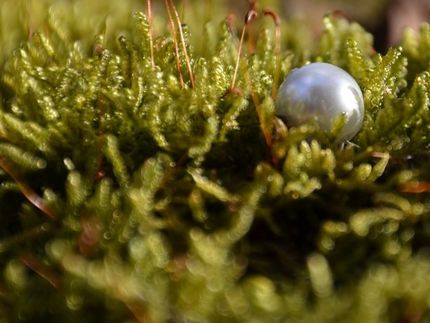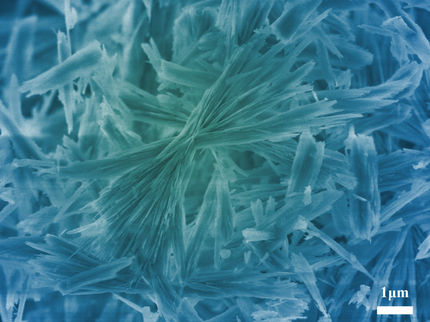Strength is shore thing for sea shell scientists
A team of materials scientists and chemists have taken inspiration from sea shells found on the beach to create a composite material from dissimilar 'ingredients'.
Their technique could be used to make ceramics with high resistance to cracking – which could in turn be used in crack-resistant building materials and bone replacements.
Writing in the journal Advanced Materials, scientists from The University of Manchester and The University of Leeds report that they have successfully reinforced calcium carbonate, or chalk, with polystyrene particles that are used to make drinks cups.
They have developed an effective method of combining calcite crystals with polystyrene particles – and have found this makes the material more ductile compared to its original brittle form.
They report that the polystyrene also acts as a toughening agent, assisting the prevention of the growth of cracks.
Scientists also observed that when the reinforced material cracked, the polymer lengthened within the cracks – a well-known mechanism for absorbing energy and enhancing toughness.
Researchers say their method allows the properties of the new material to be tweaked by selecting particles of different shapes, sizes and composition.
Dr Stephen Eichhorn from The School of Materials at The University of Manchester, said: "The mechanical properties of shells can rival those of man-made ceramics, which are engineered at high temperatures and pressures. Their construction helps to distribute stress over the structure and control the spread of cracks.
"Calcium carbonate is the main ingredient of chalk, which is very brittle and breaks easily when force is applied. But shells are strong and resistant to fracturing, and this is because the calcium carbonate is combined with proteins which bind the crystals together, like bricks in a wall, to make the material stronger and sometimes tougher.
"We have replicated nature's addition of proteins using polystyrene, to create a strong shell-like structure with similar properties to those seen in nature.
"Further research and testing is still needed but our research potentially offers a straightforward method of engineering new and tough chalk-based composite materials with a wide range of useful applications."
Organizations
Other news from the department science

Get the chemical industry in your inbox
By submitting this form you agree that LUMITOS AG will send you the newsletter(s) selected above by email. Your data will not be passed on to third parties. Your data will be stored and processed in accordance with our data protection regulations. LUMITOS may contact you by email for the purpose of advertising or market and opinion surveys. You can revoke your consent at any time without giving reasons to LUMITOS AG, Ernst-Augustin-Str. 2, 12489 Berlin, Germany or by e-mail at revoke@lumitos.com with effect for the future. In addition, each email contains a link to unsubscribe from the corresponding newsletter.




























































